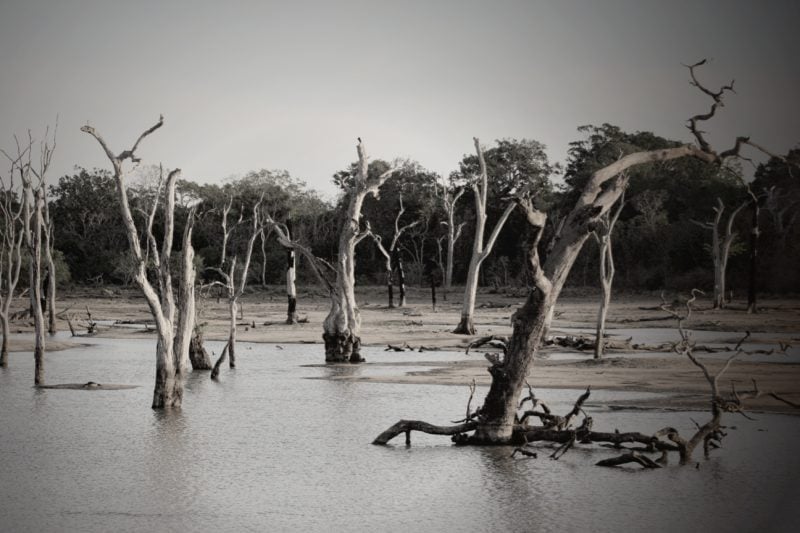When Risk Becomes too Great
Hurricane Dorian recently ravaged the Bahamas, leaving tens of thousands homeless. The Category 5 hurricane was even worse than expected. Unfortunately, as climate change worsens, the number of devastating weather events like Dorian will rise.
Homes and businesses in coastal areas will grow increasingly exposed to the possibility of ruin. How, then, will high risk properties be insured? Will certain geographic locations ultimately be considered uninsurable? At what point will regions within Florida and the Bahamas be written off as lost causes? The insurance industry is beginning to undergo some big changes. Some of these changes are due to technological developments, while others are caused by existential threats. Below are three dynamics that will force changes in the insurance industry.
Worsening Weather Events
Heat waves are becoming more sustained, snowfall is increasing, and sea levels are rising. Despite denials issued by governments and special interest groups, climate change is real and it’s wreaking havoc on our planet. The changing weather patterns inform actuarial models used by insurance companies. Private insurance is a for-profit industry that simply seeks to make more money in insurance premiums than it pays out in insurance claims. If an actuarial model deems a property as incapable of generating a profit, then private insurance companies will not insure it. Actuarial models suggest entire geographic regions to be unprofitable even when charging sky high insurance premiums. Worsening weather events are therefore making hundred of thousands of properties uninsurable by private insurance.
When private insurance companies refuse to insure properties, the government is forced to step in. Moreover, when insurance companies miscalculate their exposure, the government is responsible for the restoration effort. That said, when does the government consider cleanups like those in the Bahamas or Puerto Rico a poor allocation of resources, when the destruction is likely to be repeated? And what happens when the government is saddled with unsustainable levels of debt?
Government Debt
When private insurance is unwilling or unable to rebuild communities following disaster, the government is forced to step in. President Trump approved the distribution of financial aid to families in Texas affected by Hurricane Harvey. Because Texas is populated by members of Trump’s voter base, the decision to declare Hurricane Harvey a disaster and help Texans was an easy one to make. That said, the more recent disaster in Puerto Rico spurred tensions between politicians on opposite sides of the aisle. It took roughly 6 months for the Senate to approve an aid package, as the President was insistent on including border wall funding in the legislation. With limited funds to disperse to government projects, disaster relief can become a point of contention.
The growing mountain of government debt will continue to complicate the process by which funds are allocated to disaster relief projects. Without a sustainable system of taxation, the government’s coffers will never be replenished. Should the government be willing to fund efforts to rebuild disaster stricken areas, government bonds will need to be issued. These bonds build upon the mountain of debt that will ultimately reach unsustainable heights. There will likely come a point when the government can no longer step in following disasters. While an indebted government that’s slow to act gives us cause to worry, there are some even more worrying changes in the insurance industry. Big tech may erode competition as it leverages its data to dominate the insurance industry.
Big Tech
Insurance is all about risk analysis, tailored product offerings, and management of capital. Big tech has enough data and enough money to emerge as a force within the insurance industry. We’ve seen Apple (Apple Pay), Facebook (Libra), Amazon (Prime Credit Card), and Google (Google Pay) all enter into financial services. In an effort to become more fully integrated with our lives, insurance will be the next step. With the vast amount of data these companies have accumulated, they can offer their customers bespoke insurance products at seemingly competitive price points. If Amazon and Google, as examples, took over the insurance market, what may at first seem like disruption would end in stasis.
Without competition, policy holders will suffer. Policy holders denied claims will have fewer alternative insurers to turn to. Our data will be exploited and used against us in justifying denied claims. Big tech has already proven itself capable of avoiding government scrutiny. I only hope the government makes greater efforts to regulate big tech before they’ve commanded control of our insurance policies.
How Should We Feel About the Changes in the Insurance Industry?
The changes in the insurance industry are causes for concern. Increasing weather risks, government indebtedness, and big tech all pose challenges to insurance policy holders. It’s therefore up to us to make every effort we can to reduce our own risks. Let’s make smart decisions about where we live and who our insurance providers are. Let’s build rainy day funds and diversify income streams to better prepare ourselves for disaster. Insurance as an industry is becoming more compromised by the day. True insurance comes in the form of self-reliance. You can never become sure without developing your own insurance plan. I suggest you get started.
How do you feel about the changes in the insurance industry? Leave a comment below or contact me directly.


